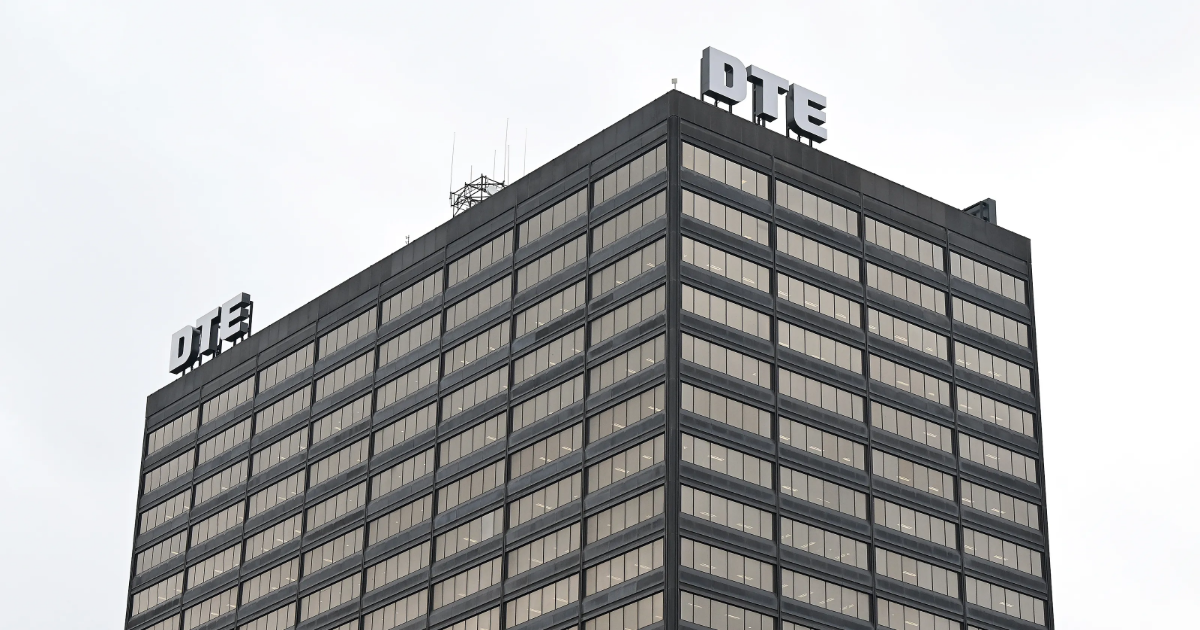Residential DTE Energy Co. customers would see their rates increase 11.1% under a request filed with state regulators this week from the Detroit-based utility.
DTE is seeking a $574 million rate increase effective Feb. 24, 2026. That overall would be a 9.8% hike when including commercial and industrial customers. The increase, according to the request, is needed to recover costs to improve grid reliability, switch to cleaner energy sources and maintain grid reliability during that transition. But some consumer advocates say the increase is too much.
“DTE Energy is making progress on building the electric grid of the future — when we invest, it works,” spokesperson Ryan Lowry said in a statement. “Today’s investment request filed with the Michigan Public Service Commission (MPSC) further supports our ongoing work to improve electric reliability and system resiliency in the face of extreme weather and to generate cleaner energy — all while keeping customer bills as low as possible and below the national average.”
A residential customer using 500 kilowatt hours per month would see their bills rise by $11.04 to $115.83 from $104.80, according to DTE. In February, the average residential retail price for electricity was 16.44 cents per kilowatt hour, according to the U.S. Energy Information Administration, which is $82.20 for 500 kilowatt hours.
DTE’s request includes a 10.8% increase for commercial customers including small businesses and schools, and 5.4% hike for industrial customers like manufacturing plants. The increase is expected to grant DTE shareholders a return on equity of 10.25%.
The request is one of the largest from DTE in recent decades. In 2023, it sught a $622 million increase. The MPSC approved a rate hike more than 40% lower than that.
In February, an increase of $217.4 million went into effect for DTE customers after the three-member MPSC in January approved a rate increase that was 52% below the utility’s original ask. Utilities can request for an increase every year, and DTE has done so for the past four years after a two-year hiatus during the pandemic. Rate cases are a 10-month process during which the public can comment.
“Just three months after the MPSC approved a $217 million rate hike,” Michigan Attorney General Dana Nessel said Friday in a statement, “DTE is already back, asking for nearly $600 million more from ratepayers still very dissatisfied with the quality of service they receive. At some point, we have to ask how long utility companies like DTE and Consumers Energy will be allowed to treat customer bills and our energy rates like a blank check.”
A third-party audit released in September found that DTE and CMS Corp.’s Consumers Energy, Michigan’s two largest utilities, had “worse than average” interruptions and restoration delays, compared to other utilities. A majority of the investments in DTE’s latest request would address the recommendations from that audit, Lowry said.
DTE officials in the request said the increase would go toward updated equipment, safety improvements and other methods to ensure electricity continues to flow to customers’ homes and businesses. It also would support converting Belle River Power Plant from coal power to natural gas and building the Trenton Channel Energy Center, which will be the largest battery storage facility in the Great Lakes region when completed, according to DTE. It also is decommissioning power generation equipment at the former River Rouge, St. Clair and Trenton Channel coal-fired plants.
DTE reported a nearly 70% improvement in customer time spent without power in 2024 compared to 2023. The company last year invested $1.5 billion into the grid to achieve that, but there also was less extreme weather last year, Lowry said.
Amy Bandyk, executive director of the Citizens Utility Board of Michigan, called the request “absurd.” She noted a report from consulting firm 5 Lakes Energy commissioned by CUB showed residential customers over the past decade have seen their rates rise by 51%, while industrial customers’ dropped 16%.
“DTE is seeking an 11.1% increase in residential rates — a rate hike that would financially burden customers who are already struggling with paying among the highest electricity rates of any utility in the country,” Bandyk said in a statement. “DTE has projected a 3.1% inflation rate for 2026, meaning its proposed rate increase is 3.58 times inflation.”
@BreanaCNoble
